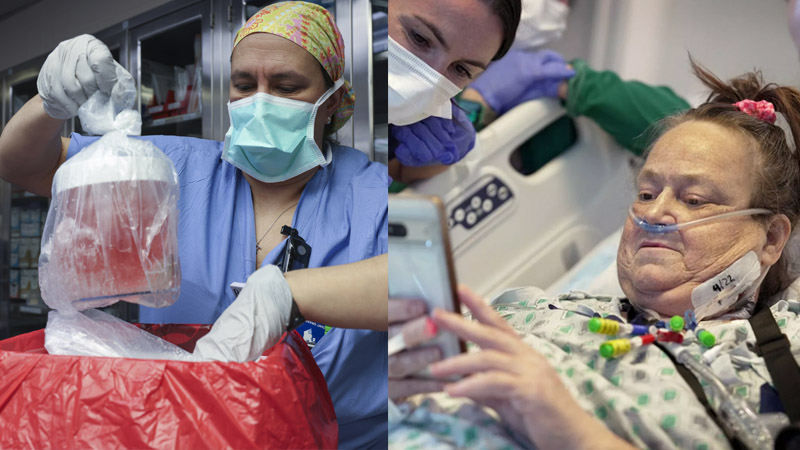A woman who received a pig kidney transplant along with an implanted device to keep her heart beating has died, her surgeon announced Tuesday. Lisa Pisano of New Jersey was near death from kidney and heart failure when surgeons at NYU Langone Health performed the dramatic pair of surgeries in April. Pisano initially appeared to be recovering well.
But about 47 days later, doctors had to remove the pig’s kidney and put Pisano back on dialysis after the organ was damaged by heart medications. Despite dialysis and the implanted heart pump, Pisano eventually entered hospice care and died Sunday, NYU Langone transplant surgeon Dr. Robert Montgomery said in a statement. KBTX.
Montgomery praised Pisano’s bravery in participating in the latest experiment in transplanting pig organs to humans, known as xenotransplantation. This research aims to address the severe shortage of transplantable organs. “Lisa helped us get closer to realizing a future where someone doesn’t have to die for someone else to live,” Montgomery said. “She will always be remembered for her courage and good nature.”
In April, Pisano, 54, told The Associated Press that he knew the pig kidney might not work, but “I just took a chance. And you know, worst case scenario, if it doesn’t work for me, it might have worked for someone else.”
Pisano was the second patient to receive a kidney from a genetically modified pig. The first, Richard “Rick” SlaymanHe received his transplant at Massachusetts General Hospital and died in early May, nearly two months later. His doctor has said he died from pre-existing heart disease, not as a result of the transplant.
More than 100,000 people are on the waiting list for a transplant in the United States, most of whom need a kidney, and thousands die while waiting. Several biotech companies are genetically modifying pigs so that their organs are more human-like and less likely to be rejected by the human immune system.
In addition to the two experiments with pig kidneys, the University of Maryland has also transplanted pig hearts into two men who had no other options; both died within months. Still, what doctors learned from these attempts, along with research on donated bodies, gives them hope. They aim to begin formal clinical trials sometime next year with patients who are not as sick.


